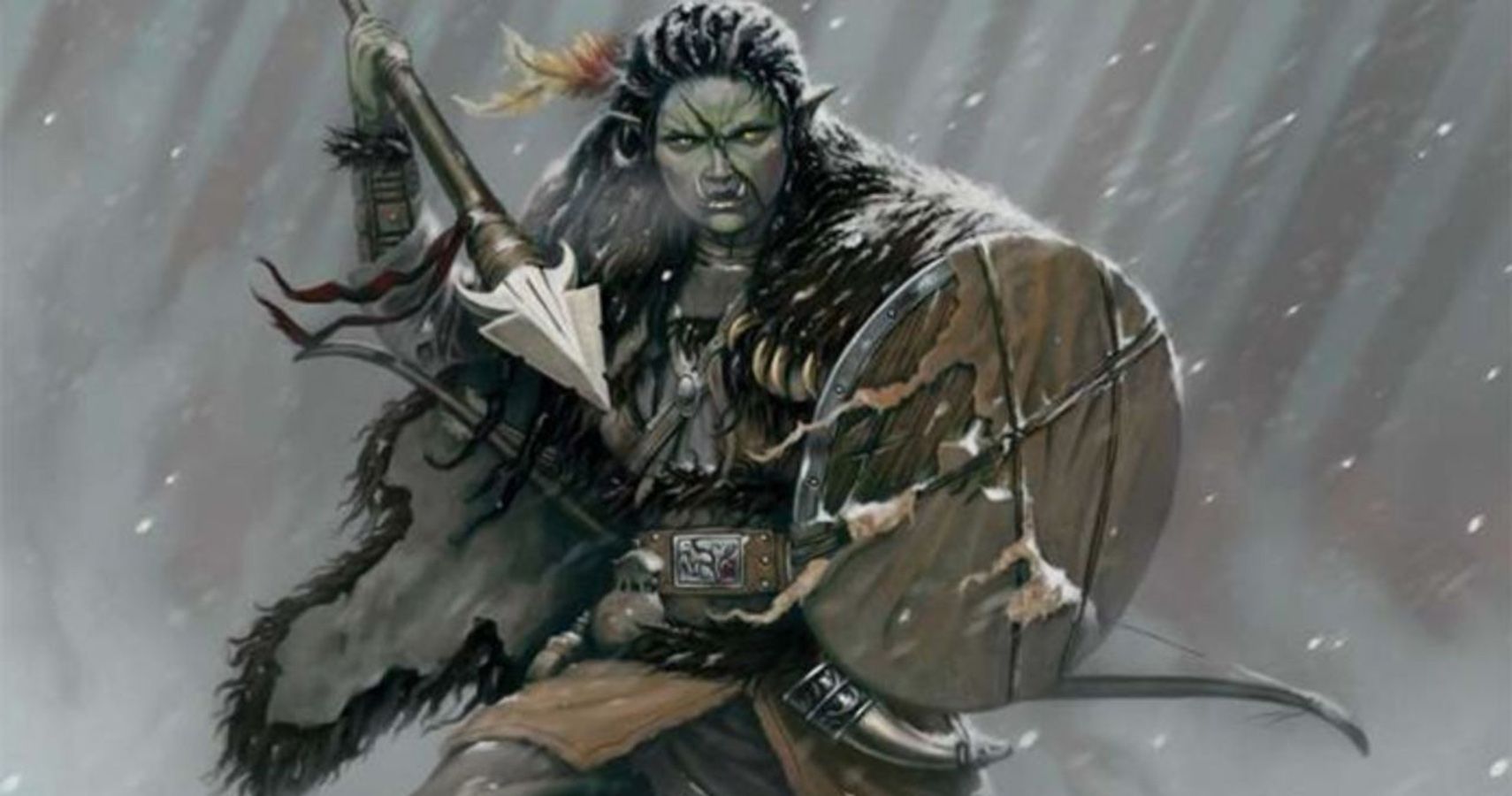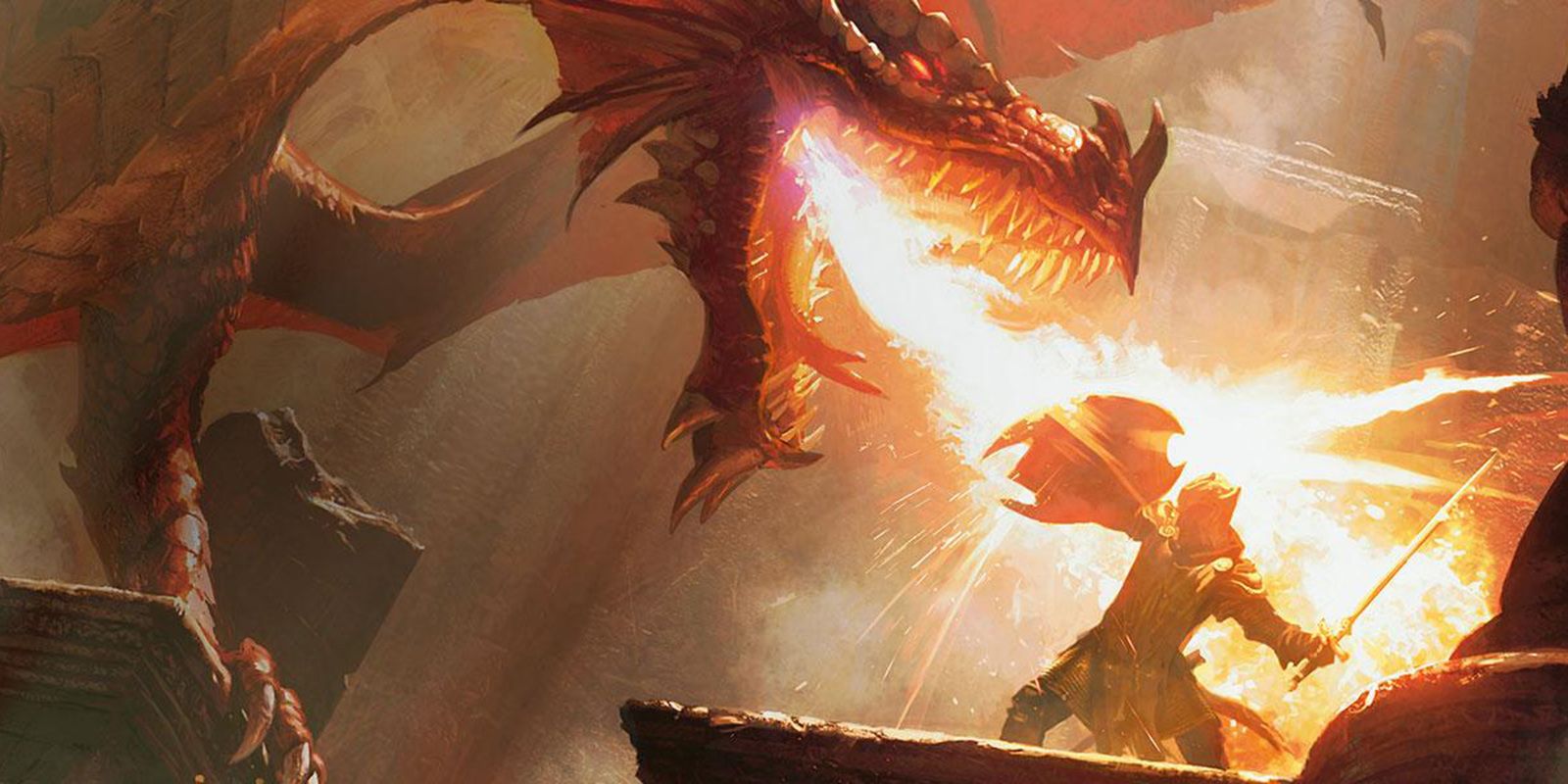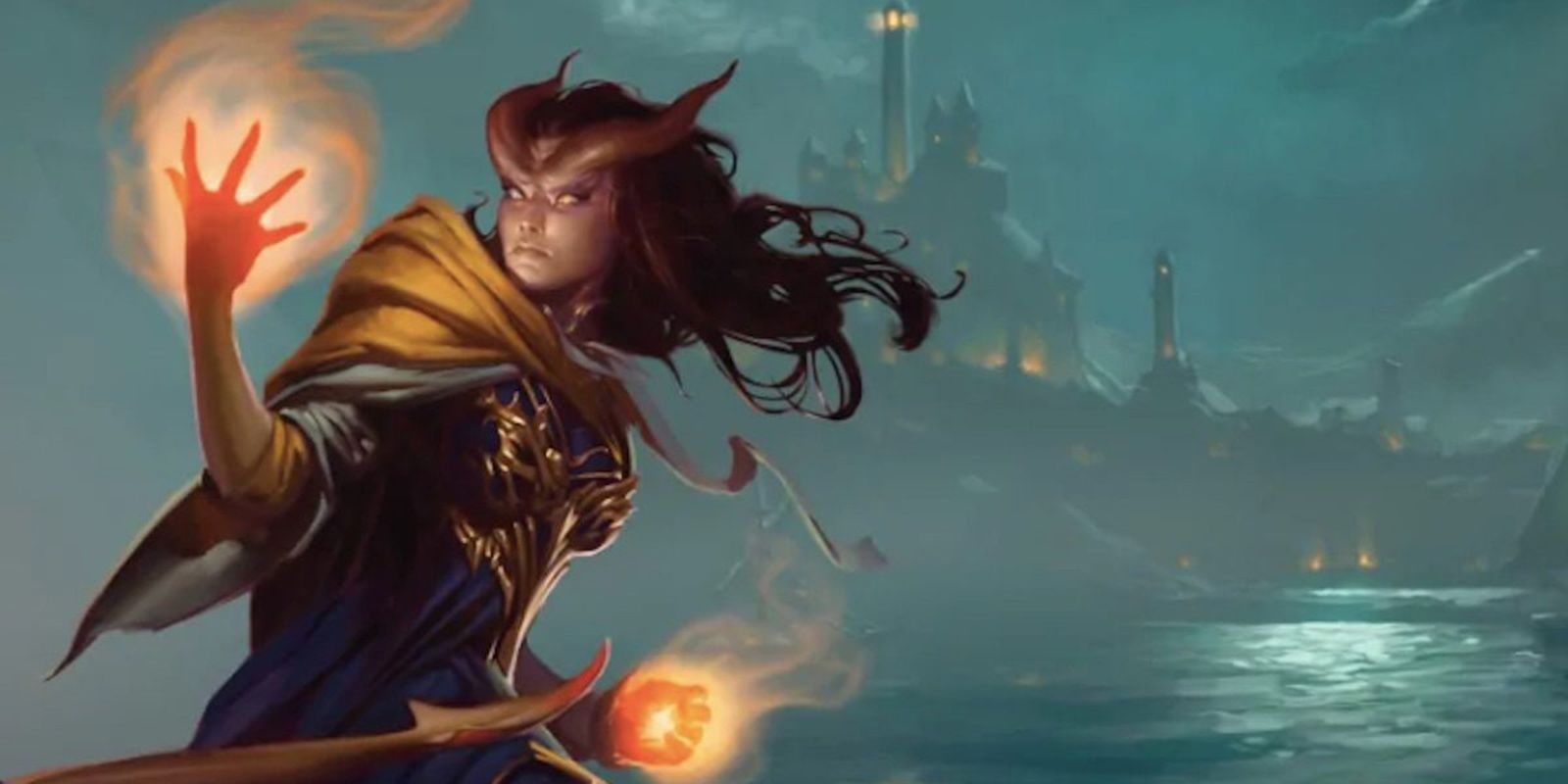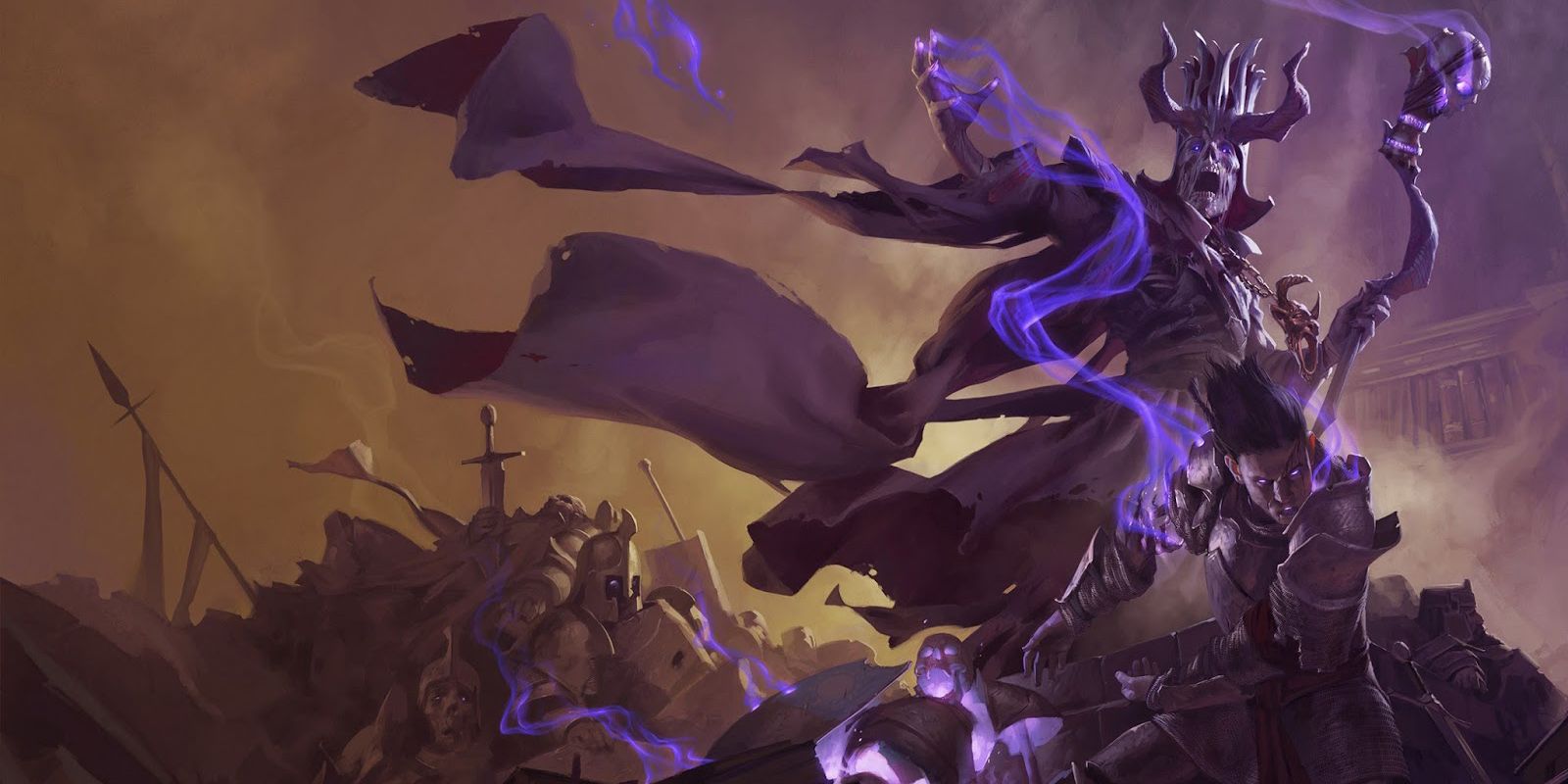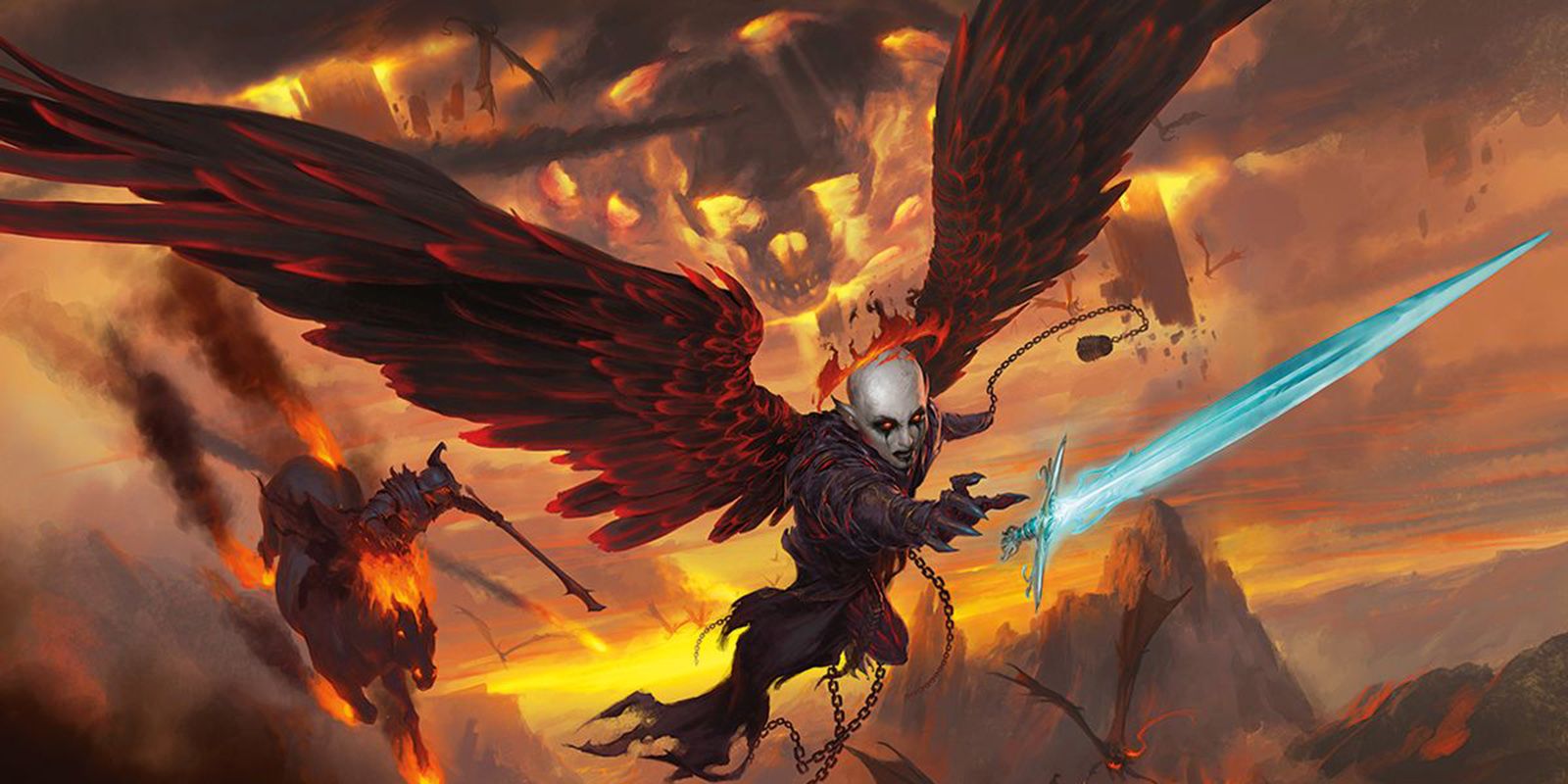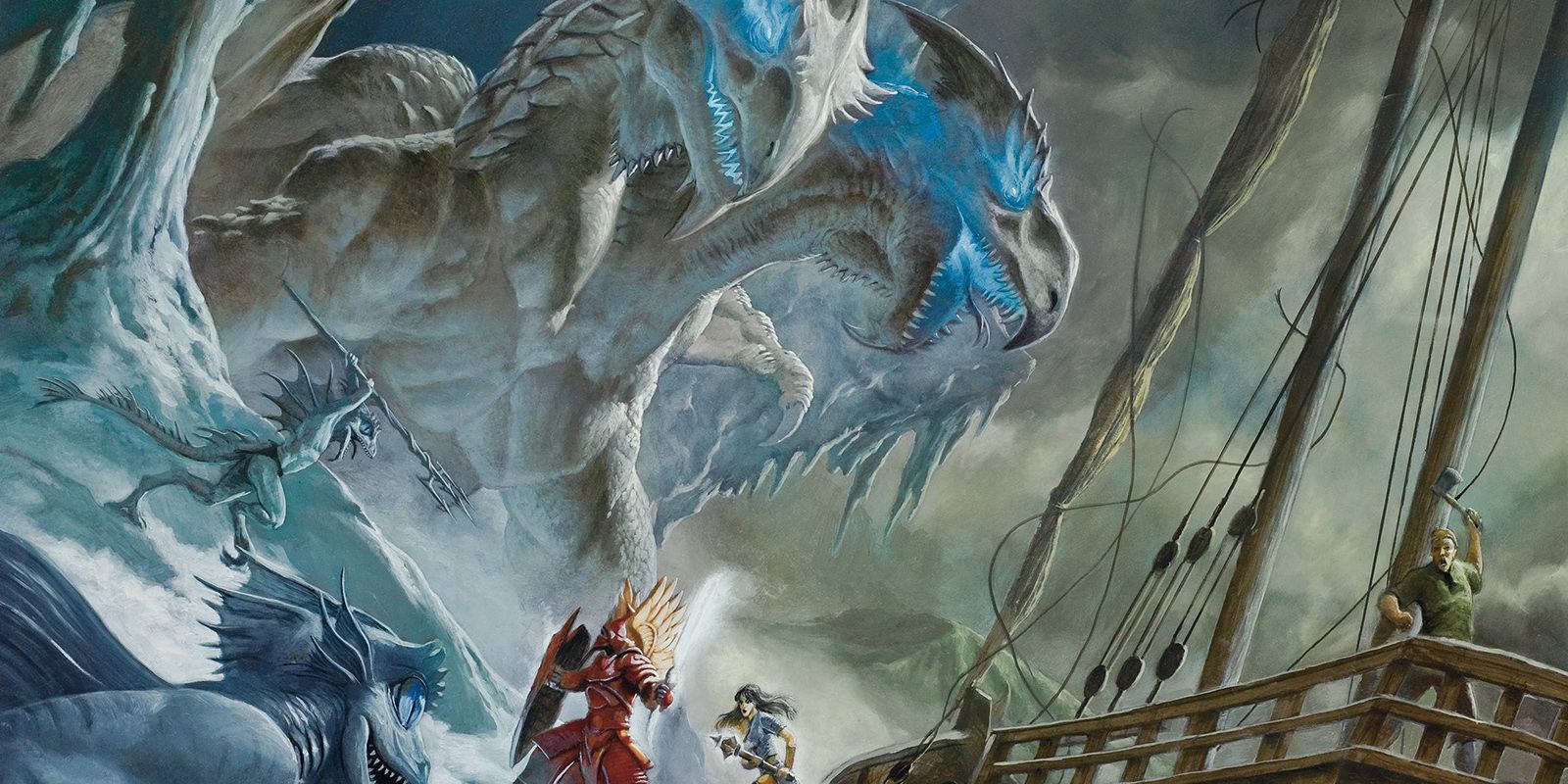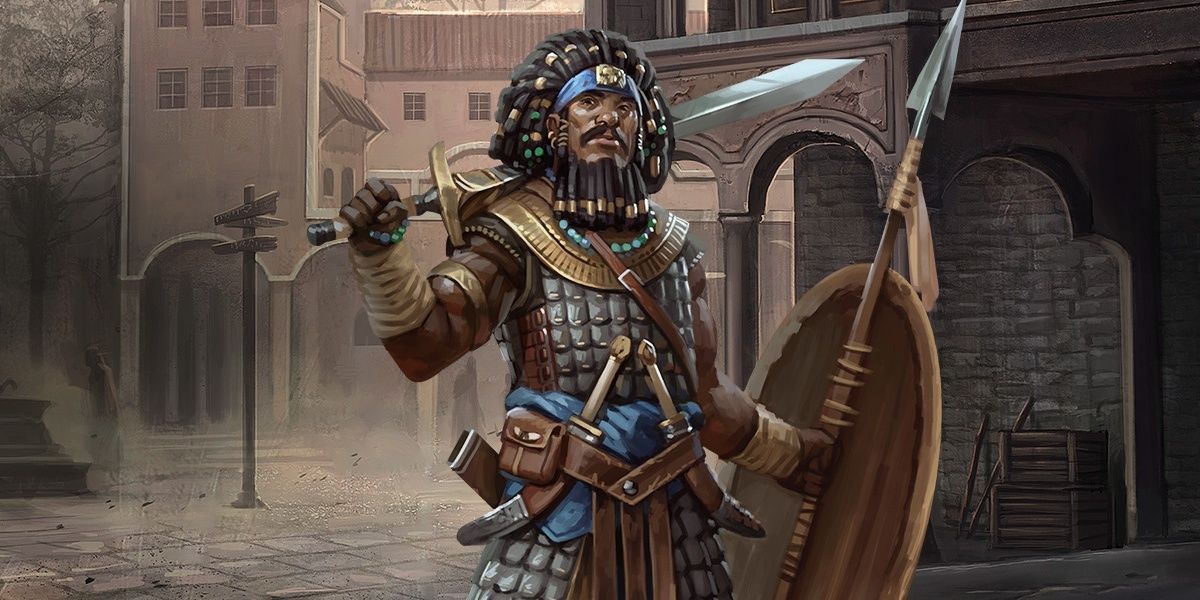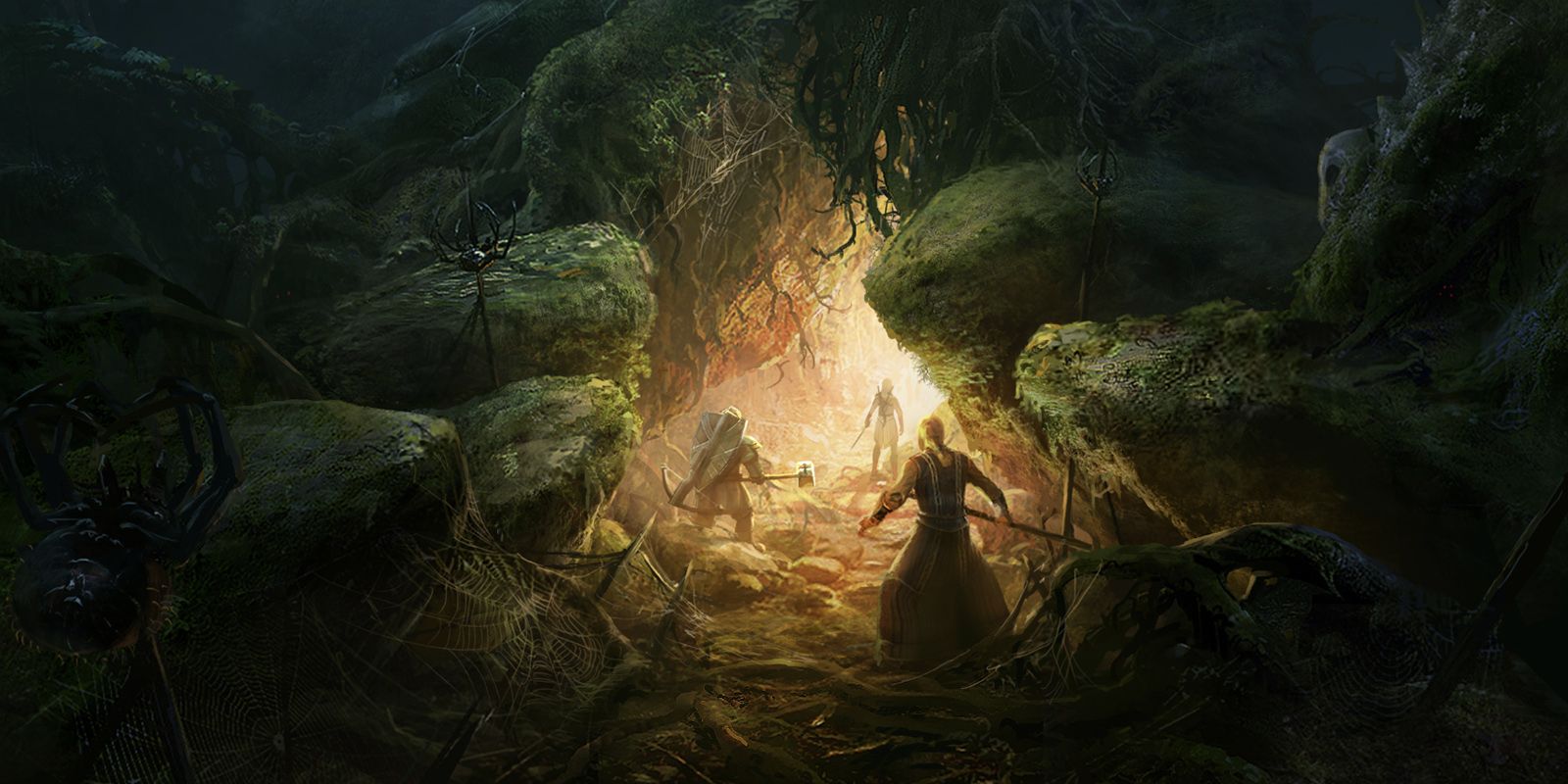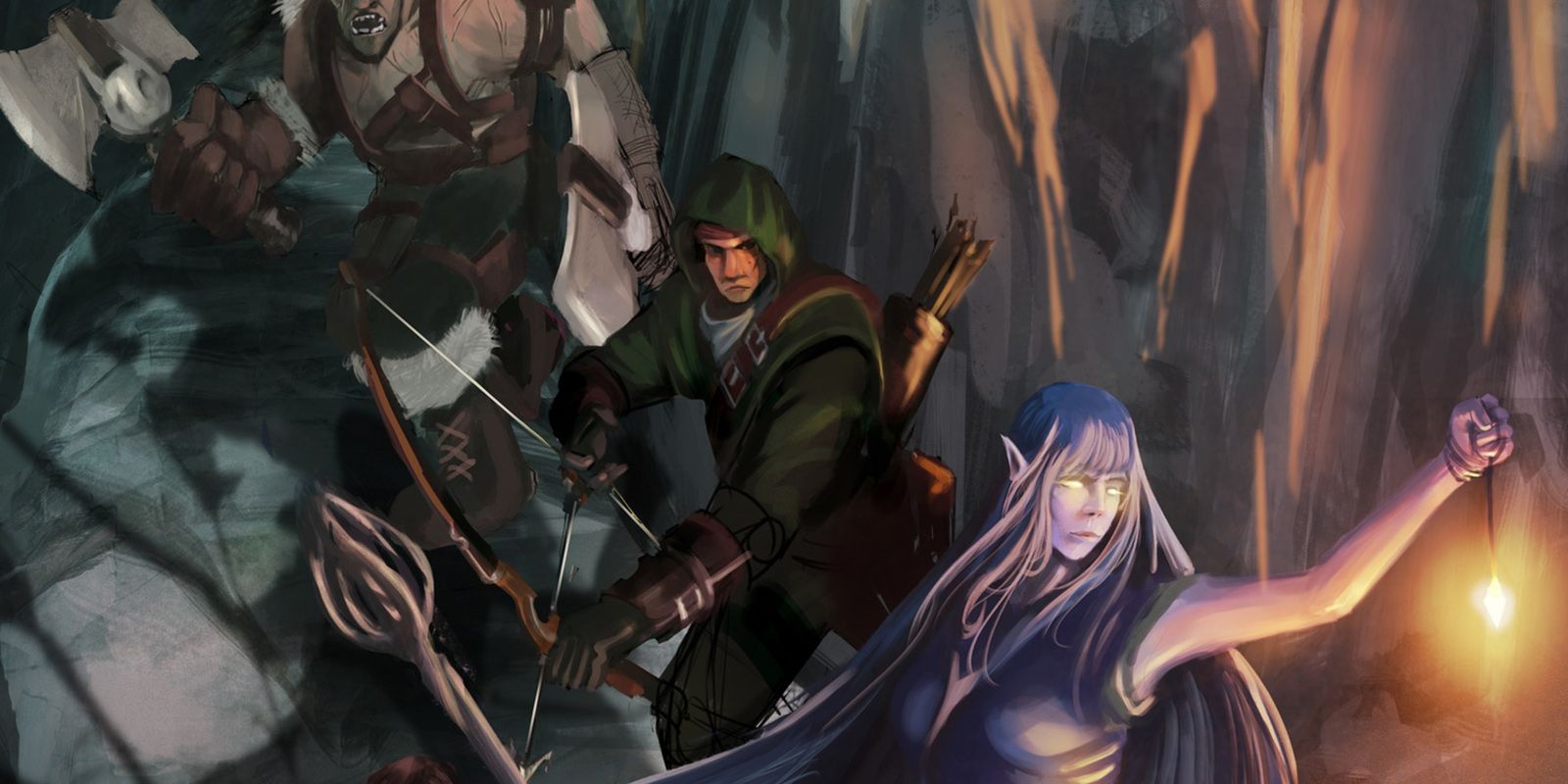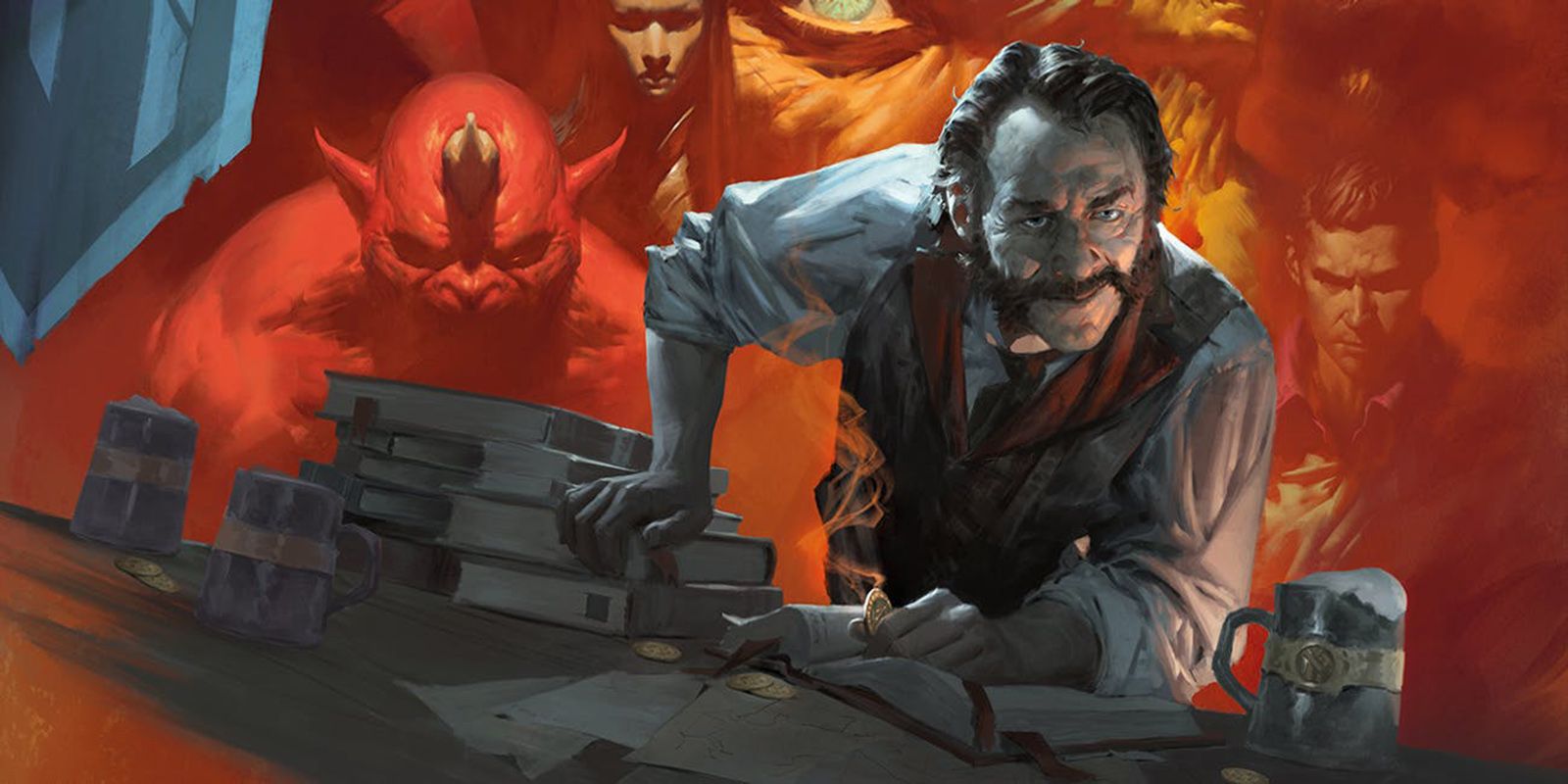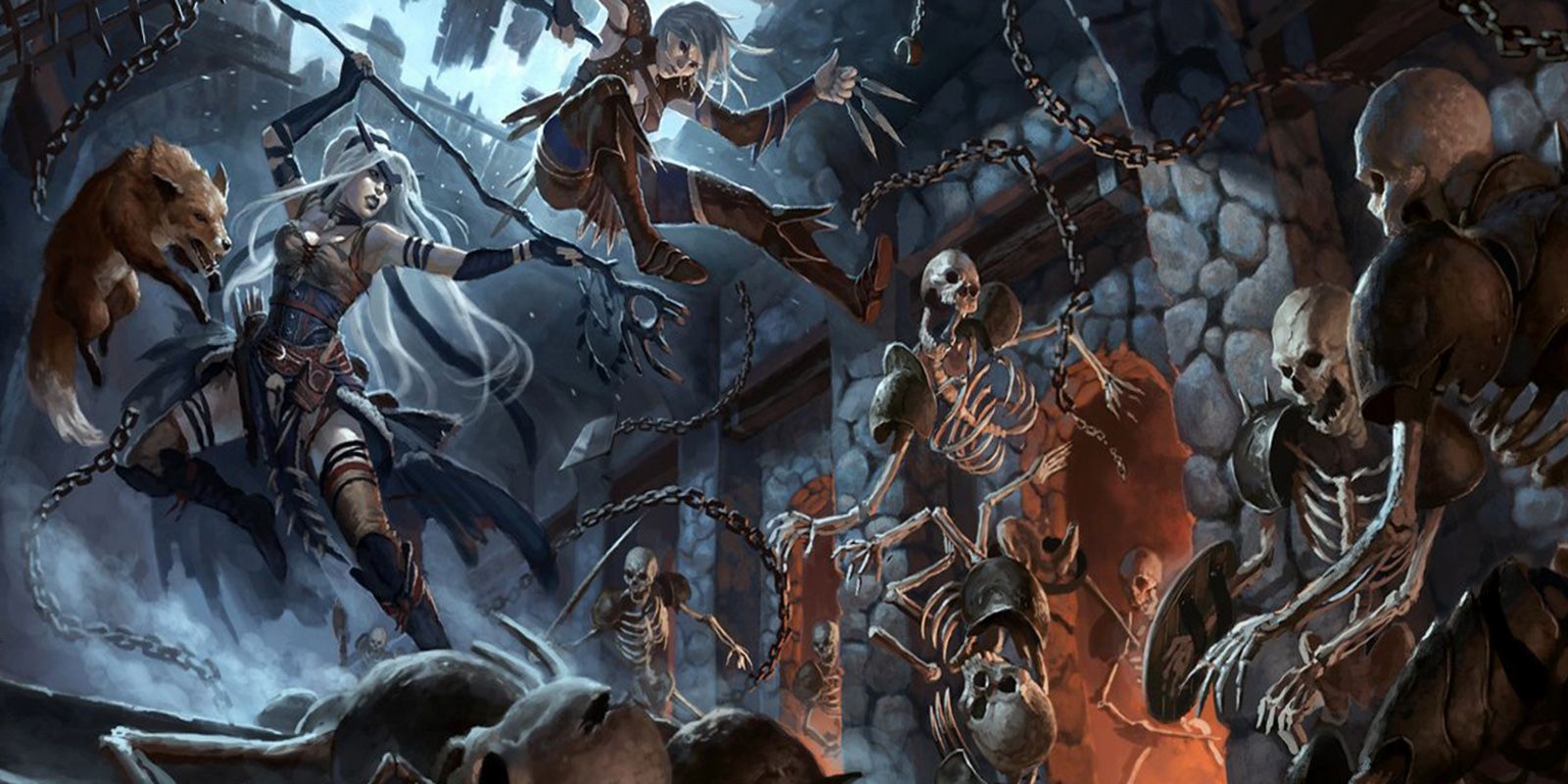For many players, starting a new character is one of the most exciting aspects of playing Dungeons & Dragons. It’s a chance to start fresh, step into another role, and try something new. For players who are just starting out or someone who’s been trapped in the same role and wants to break the mold a bit it can be a bit intimidating and confusing to build a new character.
There are a lot of moving parts and each interact with each other in unique and interesting ways. To get you started and hopefully make things a lot easier here are some essential tips when you start creating your new character.
10 Start Simple
This game is as complex as you want it to be and it can be very tempting to dive into the deep end. Many players want to create some big bad character that can dual wield two greatswords, cast divine spells, and have a variety of powerful abilities.
But as awesome as a Tiefling Warlock/Blackguard/Paladin sounds it’s going to be very complicated to build and wield efficiently. Don’t be afraid to go simple, especially starting out, there’s nothing wrong with playing a Dwarf Fighter or an Elf Ranger. Once you start to get the hang of things then you can add in some complexity.
9 Be Yourself
It can also be difficult to nail down what your character’s personality is. If you’re having trouble then just be yourself, literally. Pick a unique name, but make the character you with your backstory and personality quirks.
Are you a bookworm who enjoys learning new things? Be a Wizard excited about discovering old tomes and archaic runes. Are you a bit of grump with a short temper? Be a Barbarian ready to chop people’s head’s off if they’re annoying. Be the more powerful/ideal version of yourself and the roleplaying will come naturally.
8 Do The Opposite
Alternatively, you could be something you aren’t or couldn’t be in real-life. If you’re a bit on the short, scrawny side, feel free to become a Goliath Fighter. Wish you could be a little lighter on your feet and have good balance? Be a Halfling Rogue with high dexterity.
Alternatively embrace your dark side. If you’re sick of being a polite and easy-going person in real-life step into the role of a fiery Half-Elf Sorceress and incinerate anyone who opposes you. Be a greedy Tiefling Cleric who isn’t afraid to use force to get what you want.
7 Character Blueprint
If you’re still struggling to figure out who your character is and what their motivations are try drawing inspiration from something else. Who’s your favorite character in Lord Of The Rings? Which character do you relate to in Warcraft 3? Find someone and replicate their character as best you can.
If you’re still having problems consider using one of the many, many character outlines and blueprints from the internet as inspiration. A quick google search will generate tens of thousands of fans who’ve posted the favorite characters they’ve created to give you an idea.
6 Pick Active Characters
It’s important when creating a character to create an active character. Meaning someone who is willing to act to achieve the things they want or finish the task set out for them. It might seem fun to run a pacifist Monk, an elitist Bard who lets others do the work, a timid Cleric, a Wizard who faints at the sight of blood, or a Rogue who refuses to talk to anyone, but this makes it hard on your party and the DM when it comes time to play.
It’ll also be hard on you. What good are you in battle when you immediately experience Fear and run away from everything? Why on earth would you venture into the ancient tomb when you don’t’ want to get your fancy clothes dirty? Make sure your character is active and capable of handling the tasks at hand.
5 Keep Yourself Rounded
You also want to create a character that’s well rounded for whatever combat scenario they find themselves in. Sure your Barbarian might be able to split a man in two, but what happens when your facing a Wraith immune to normal weapons? Or a Drow fighting with a bow from a high vantage point?
While you should specialize in a particular form of combat make sure your character is able to handle other scenarios. Give them a few abilities to handle ranged, melee, and magical combat so they don’t find themselves a helpless victim.
4 Remember I.C.E.
In fact remembering I.C.E. is a good idea when rounding out your character. I.C.E. stands for Interaction, Exploration, and Combat. Interaction is when you interact with NPCs, Combat is self-explanatory, and Exploration is when you might need to get somewhere fast, perceive hidden objects, or know the nature of things.
You don’t need to be the expert in everything, but determine what your character would be the expert in and throw a few skills and strong feats in the other things to keep yourself rounded. A Wizard should be able to function in melee, a Barbarian will have to talk to people at some point, and everyone could use a little more Perception.
3 Your Role In The Party
Now that you have a feel for who your character is and what they’re capable of it’s key to remember how they’ll fit in with the rest of the party. Being a loner is fun, but loners tend to avoid joining groups which is exactly what you’re doing, you can still be a loner just have some exceptions to the rule.
It’s also handy to have a few skills and abilities that benefit your teammates. If your only healer goes down you’ll be grateful for having the Medicine skill to stabilize them. Instead of picking only attack spells, knowing things like Haste will make your Wizard a boon to the party.
2 Story Trumps Optimization
This is a problem for people playing Dungeons & Dragons after playing video games or other tabletop RPGs. Do not focus on optimizing your character. Now don’t misunderstand, this doesn’t mean you don’t create a strong character with a lot of potential, this means don’t obsess over the numbers to maximize that potential.
Mostly because it’ll be pointless anyway. You can have your character’s skills and stats fine tuned to maximize the damage dealt with your prized bastard sword only for the story to confiscate your weapons and leave you at the mercy of found items. It’s more important to build a character capable of handling the story, rather than milking the numbers.
1 Fun Trumps Everything
At the end of the day the most important thing to keep in mind is this is supposed to be fun, so do whatever’s fun. A Half-Orc Bard may not make the most sense, but if it’s what you want to do and it sounds fun, go for it.
Chances are you’ll make mistakes and your character will be weak in some aspects but if your character is capable of surviving the story and things are still fun then it wont matter. Often times letting the chips fall where they may and sticking with a flawed character makes for a more enjoyable experience than if they were an overpowered juggernaut.

